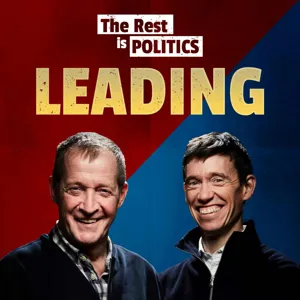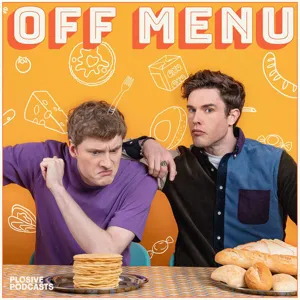69. The brutal truth about net zero and how to vanquish climate populists, with Dieter Helm

Explore "carbonemissions" with insightful episodes like "69. The brutal truth about net zero and how to vanquish climate populists, with Dieter Helm", "Makers of electric roasters pitch carbon cutting in coffee making", "Nuclear energy’s role in decarbonizing the economy", "The six D-words of climate change" and "The air-istocracy" from podcasts like ""Leading", "Marketplace Tech", "Make Me Smart", "Today, Explained" and "Today, Explained"" and more!


Roasting coffee beans was a market worth over $1 billion globally in 2022, according to Grand View Research, which projects that figure could double by 2030. Traditional roasters, powered by the fossil fuel natural gas, still dominate the market. These machines are big and bulky and kind of look like part of a train. But the makers of more compact electric roasters are piling into the business. And they have an edge, touting themselves as high-tech alternatives that are more environmentally friendly and cheaper to run than their old-school counterparts. The BBC’s Frey Lindsay has more on the story.

Despite a long period of relative stagnation, nuclear power has remained the quiet backbone of the United States’ clean energy supply for decades. Now, the Joe Biden administration wants more from the sector as the country hustles to meet ambitious emissions goals.
Jigar Shah, the director of the Energy Department’s Loan Programs Office, said nuclear energy will only become more critical as demand for electricity surges over the next 20 years.
On the show today, Shah makes us smart about how much the country relies on nuclear energy. We’ll also discuss lessons learned from building the first nuclear reactor from scratch in decades, and how the industry plans to win over Americans who are concerned about safety and toxic waste.
Then, we’ll get into the high stakes of today’s vote for speaker of the House of Representatives. And Elon Musk’s satellite internet company Starlink is part of geopolitical conversation yet again, this time in Israel.
Later, we’ll hear from a teacher about the expectations that educators pay for classroom supplies themselves. And this week’s answer to the Make Me Smart question comes from Kai Bird, co-author of “American Prometheus: The Triumph and Tragedy of J. Robert Oppenheimer.”
Here’s everything we talked about today:
We want to hear your answer to the Make Me Smart question. You can reach us at makemesmart@marketplace.org or leave us a voicemail at 508-U-B-SMART.



The wildfires sweeping Canada have become the largest in its modern history. Across the country, 30 million acres of forest have burned — three times as much land as in the worst American fire in the past 50 years.
The scale has forced an international response and a re-evaluation of how the world handles wildfires.
Firefighters on the front lines discuss the challenges they face, and David Wallace-Wells, a climate columnist for The Times, explores how climate change has shifted thinking about wildfires.
Guest: David Wallace-Wells, a climate columnist for The New York Times.
Background reading:
For more information on today’s episode, visit nytimes.com/thedaily. Transcripts of each episode will be made available by the next workday.

In the fight against global warming we’re constantly told to do our bit to reduce green house gas emissions. However, a claim circulating that just ‘100 companies are responsible for 71% of global emissions’ can make any individual effort seem futile. But does this claim mean what you think it means? We look into this and the claim that the pandemic pushed South African stress levels up by 56%. With guests Abbas Panjwani from Fullfact and Kirsten Cosser from Africa Check.
(Image: Power plant emitting smoke at sunset. Credit: Enviromantic/Getty)



We continue our mission to use numbers to make sense of the world - pandemic or no pandemic. Are doctors from ethnic minority backgrounds disproportionately affected by Covid-19? Was the lockdown the decisive change which caused daily deaths in the UK to start to decrease? With much of the world’s population staying indoors, we ask what impact this might have on climate change and after weeks of staring out of the window at gorgeous April sunshine, does cruel fate now doom us to a rain-drenched summer? Plus, crime is down, boasts the home secretary Priti Patel. Should we be impressed?

Off Menu is supporting the global climate strike on Friday 20th September, organised by Greta Thunberg and the UK Student Climate Network.
Young people have woken up much of the world with their powerful Fridays for Future school strikes for the climate. As we deal with devastating climate breakdown and hurtle towards dangerous tipping points, young people are calling on millions of us across the planet to disrupt business as usual by joining the global climate strikes on September 20, just ahead of a UN emergency climate summit, and again on September 27.
Together, we will sound the alarm and show our politicians that business as usual is no longer an option. The climate crisis won’t wait, so neither will we. Find out more at globalclimatestrike.net
Hosted on Acast. See acast.com/privacy for more information.

To feed 7 billion people while protecting the environment, it would seem that going local is a no-brainer -- until you start looking at the numbers.

In this episode, Josh and Chuck demystify carbon trading, discussing everything from cap-and-trade schemes to carbon credits.
Learn more about your ad-choices at https://www.iheartpodcastnetwork.com
See omnystudio.com/listener for privacy information.
Stay up to date
For any inquiries, please email us at hello@podcastworld.io